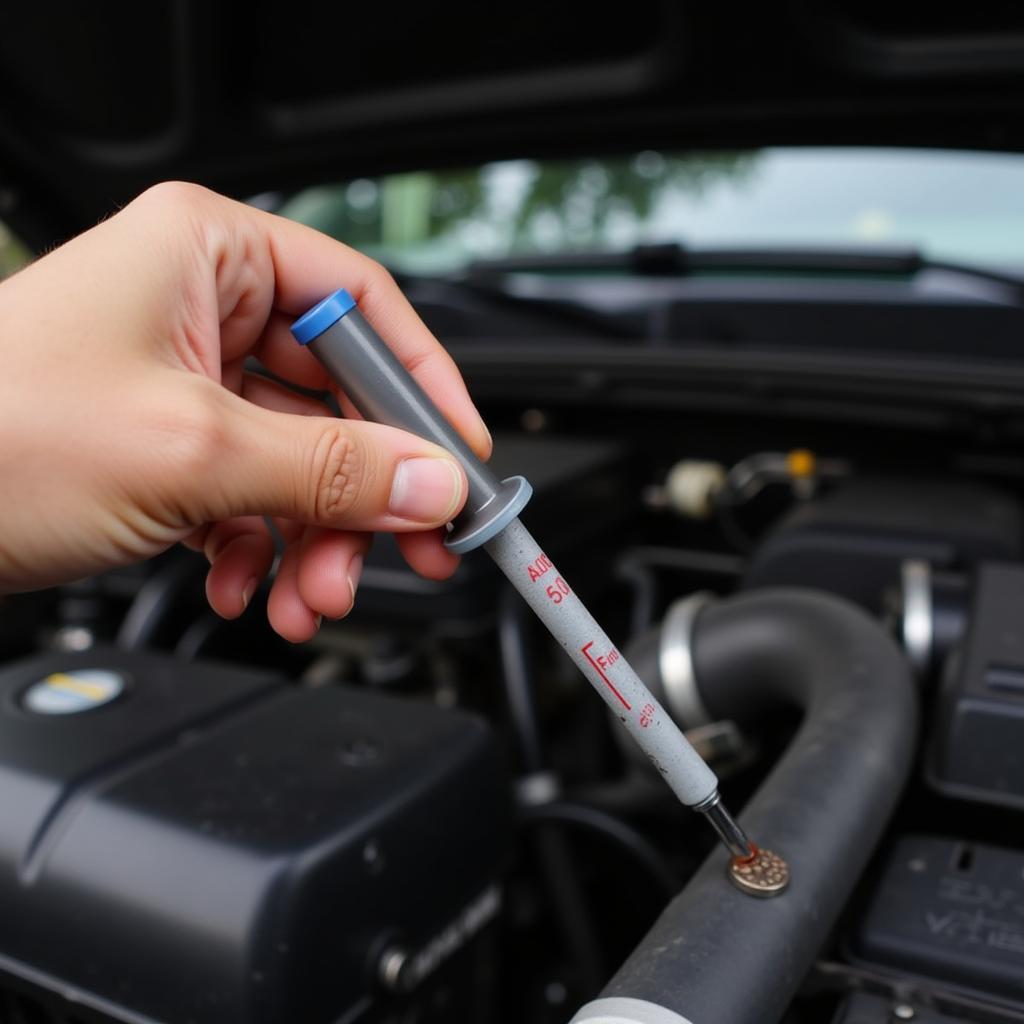Troubleshooting car problems by sound can save you time and money. A strange noise is often the first sign that something’s wrong with your vehicle. Learning to identify these auditory clues can help you diagnose the issue and determine the necessary repairs, before a minor problem escalates into a major – and costly – one.
Common Car Noises and Their Causes
Many car problems announce themselves with distinct sounds. Recognizing these sounds can help you pinpoint the source of the trouble. Let’s explore some of the most common car noises and their potential causes.
Troubleshooting Car Problems by Sound: Engine Noises
Engine noises can range from a gentle tapping to a loud knocking. A tapping sound could indicate low oil pressure or worn-out valve lifters. A knocking sound, especially when accelerating, might be caused by worn bearings or excessive carbon buildup. A squealing sound upon startup could signal a worn serpentine belt.
If your engine is making unusual noises, it’s crucial to have it checked by a qualified mechanic immediately. Ignoring engine noises can lead to serious and expensive engine damage.
Troubleshoot Car Problems by Sound: Brake Noises
Brake noises are another common issue. Squealing brakes can indicate worn brake pads or glazed rotors. A grinding sound suggests that the brake pads have completely worn down and the metal backing plates are scraping against the rotors. This requires immediate attention as it can damage the rotors. Clicking noises might be caused by loose calipers or worn-out brake hardware.
Ignoring brake noises can compromise your safety and lead to costly repairs.
Troubleshoot Car Problems by Sound: Suspension Noises
Suspension noises are typically heard when driving over bumps or turning. Squeaking or clunking sounds might indicate worn-out shocks, struts, or ball joints. A groaning noise, especially when turning the steering wheel, could be a sign of a failing power steering pump or low power steering fluid.
Regularly inspecting and maintaining your suspension system is vital for a comfortable and safe driving experience.
How to Effectively Troubleshoot Car Problems by Sound
Troubleshooting car problems by sound requires careful listening and observation. Here’s a step-by-step guide:
- Identify the noise: Describe the sound as accurately as possible (e.g., squealing, grinding, clicking, knocking).
- Note when the noise occurs: Does it happen when starting the car, accelerating, braking, or turning?
- Locate the source of the noise: Try to pinpoint where the sound is coming from (e.g., front, back, left, right).
- Consult reliable resources: Use online forums, repair manuals, or consult a mechanic.
- Test your observations: If possible, try to recreate the noise under controlled conditions.
“A systematic approach is essential when troubleshooting car problems by sound,” says John Davies, Senior Automotive Technician at Davies Auto Repair. “Don’t jump to conclusions based on a single sound. Take the time to gather information and consider all possibilities.”
Why is Troubleshooting Car Problems by Sound Important?
Troubleshooting car problems by sound is crucial for several reasons:
- Early detection of problems: Unusual noises can be early warning signs of potential issues, allowing you to address them before they escalate.
- Cost savings: Identifying problems early can prevent costly repairs down the road.
- Improved safety: Addressing issues related to brakes, steering, or suspension can significantly improve your safety on the road.
- Enhanced vehicle longevity: Proper maintenance based on early problem detection can extend the lifespan of your vehicle.
“Paying attention to your car’s sounds is like listening to its heartbeat,” explains Sarah Mitchell, Lead Mechanic at Mitchell’s Auto Care. “It can tell you a lot about its health and help you keep it running smoothly for years to come.”
Conclusion
Troubleshooting car problems by sound is a valuable skill for any car owner. By learning to recognize common car noises, you can identify potential issues early, saving yourself time and money, and ensuring a safer driving experience. Remember, a little preventative maintenance goes a long way. If you’re unsure about a particular noise, don’t hesitate to contact a qualified mechanic. For further assistance or personalized advice, connect with AutoTipPro at +1 (641) 206-8880 or visit our office at 500 N St Mary’s St, San Antonio, TX 78205, United States. We’re always happy to help Troubleshoot Car Problems By Sound.






Leave a Reply